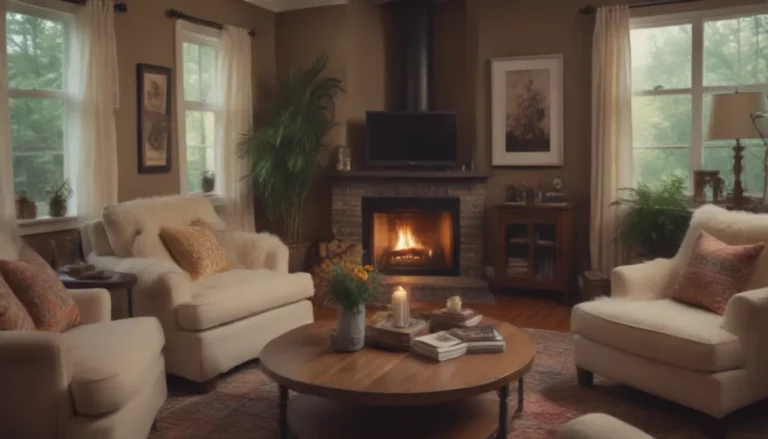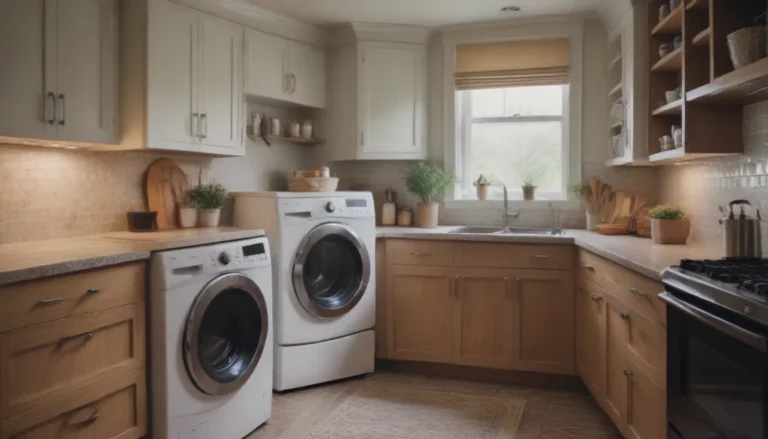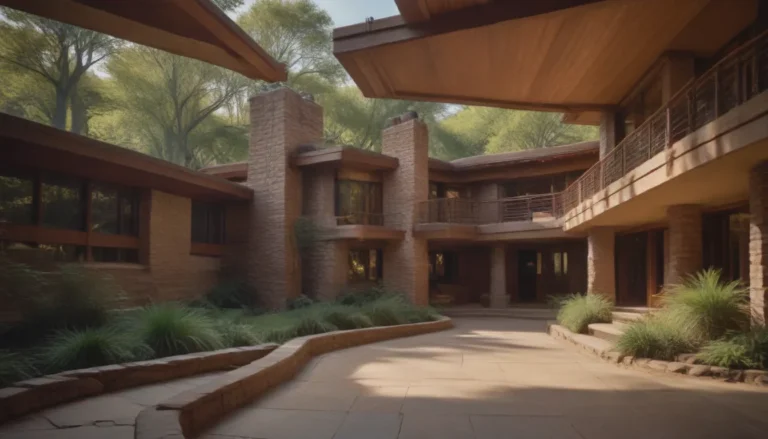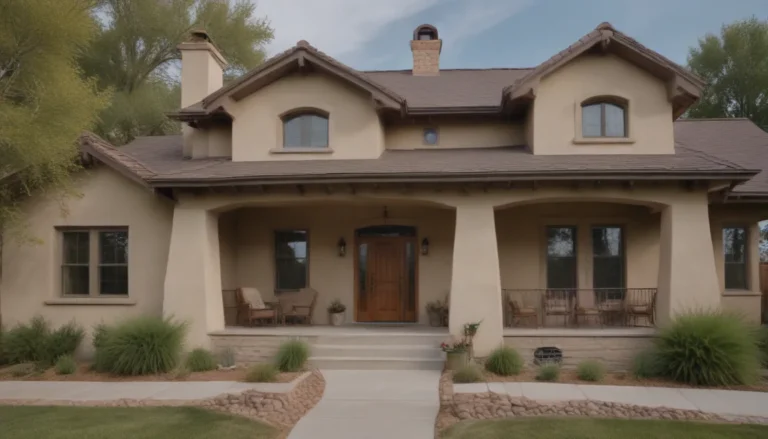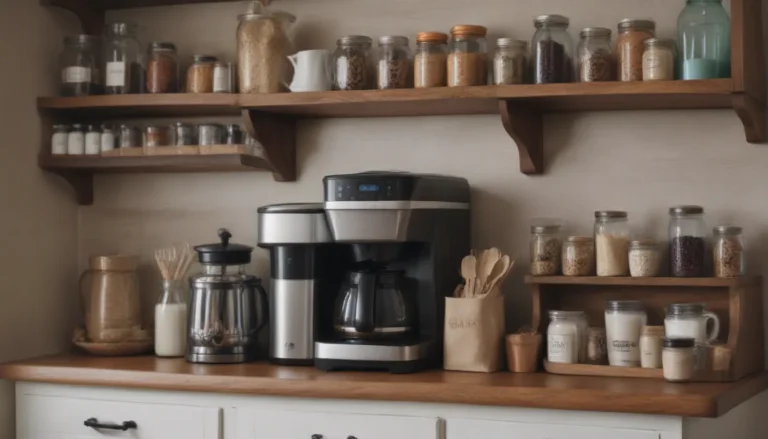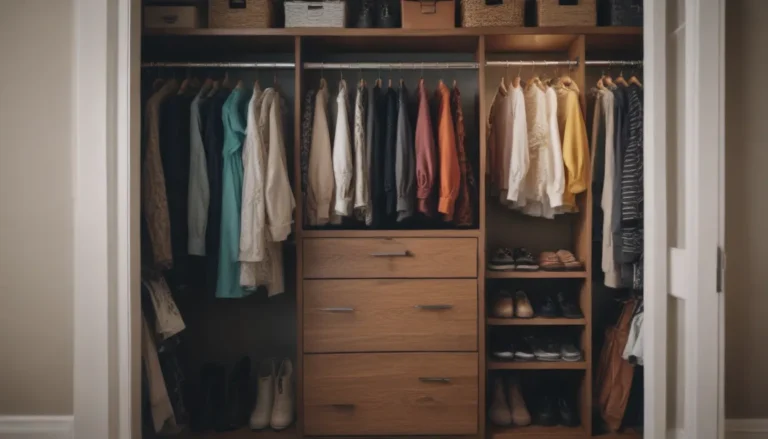The Ultimate Guide to Porch Flooring Options
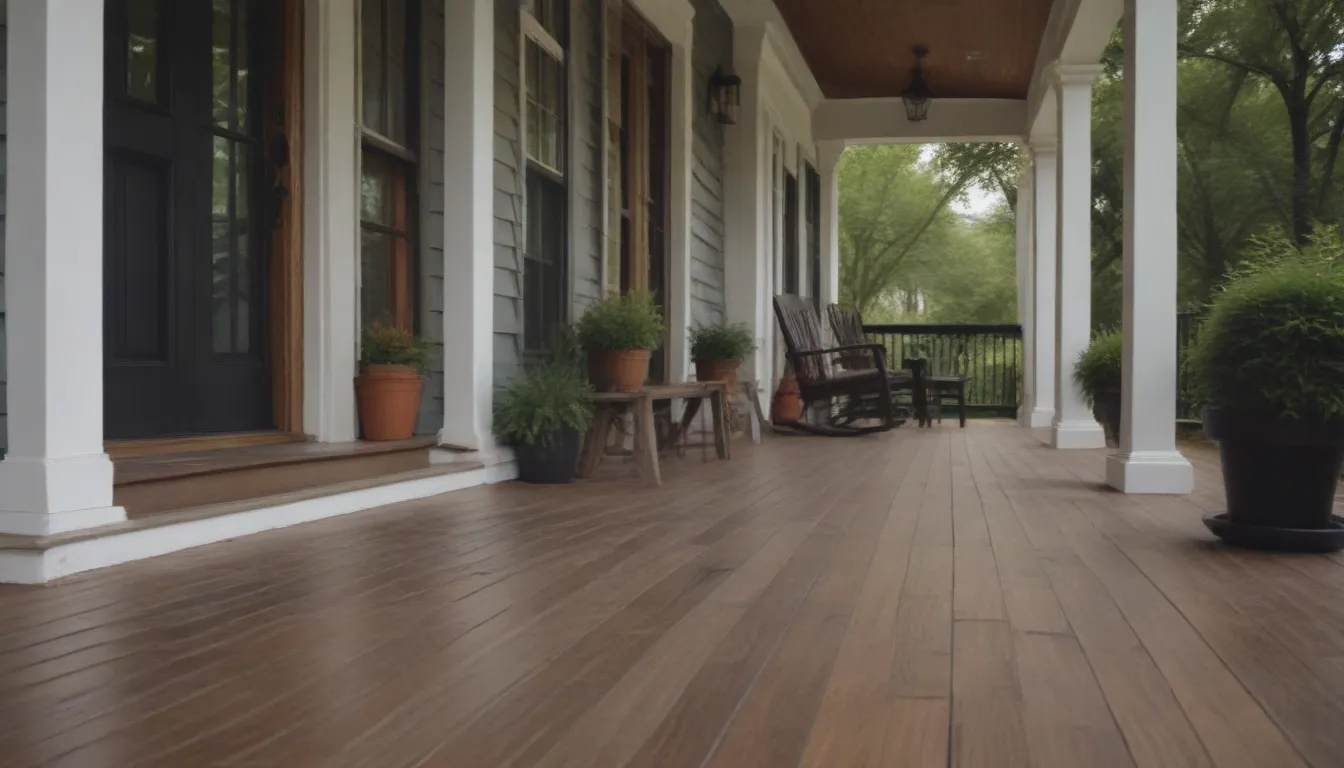
Are you looking to upgrade your porch flooring but overwhelmed by the numerous options available? We’ve got you covered! In this comprehensive guide, we’ll explore ten of the most popular porch flooring options to help you make an informed decision. From traditional wood to modern composites, we’ll discuss the pros and cons of each material so you can choose the best flooring for your porch. So sit back, relax, and let’s dive in!
What is a Porch?
Before we jump into the different flooring options, let’s quickly define what a porch is. A porch is any free-standing structure attached to but exists outside of the base frame of a building. It can range from a simple deck to a fully enclosed space with walls and windows. Depending on the type of porch you have, the choice of flooring material will vary.
Pressure Treated Pine Porch Flooring
Pros:
– Durable and weather-resistant
– Inexpensive and long-lasting
– Adds value to your home
Cons:
– Can warp and shrink
– Requires maintenance
– Corrodes metal fasteners not made of galvanized or stainless steel
Pressure-treated pine is a popular choice for porch flooring, accounting for 80% of all decking materials. It’s available in 2-inch planks and flat sheet board sizes, making it versatile for different porch designs. While it can last up to 15 to 40 years, it may darken and crack over time from exposure to the elements.
Redwood Porch Flooring
Pros:
– Beautiful red-tinted hue
– Resistant to rot, mold, and insects
– Easy to cut and install
Cons:
– Expensive
– Requires maintenance to keep color
– Can stain easily from metal reactions
Redwood is an exotic wood option for porch flooring, offering a unique aesthetic appeal. While it can last up to two decades with minimal maintenance, it comes at a higher price point compared to other materials.
Tip:
When installing porch flooring in a rainy area, make sure to slope the surface for proper drainage and prevent pooling of water.
Cedarwood Porch Floors
Pros:
– Naturally resistant to weather and vermin
– Lasts up to 40 years with minimal maintenance
– Doesn’t require sealant
Cons:
– Weathers to gray over time
– Prone to scratches and dents
Cedarwood is another attractive option for porch flooring, known for its longevity and natural beauty. While it’s more readily available than redwood, it comes at a similar price point and requires occasional sealing to maintain its appearance.
Resilient Vinyl Click Together Flooring
Pros:
– Resistant to water, stains, and mold
– Low maintenance and easy to clean
– Comes in various colors and styles
Cons:
– Prone to fading in direct sunlight
– Can get hot underfoot in sunny conditions
Vinyl porch flooring offers a hassle-free exterior surface solution that is affordable and easy to install. While it may fade over time and require proper disposal of cuttings, it can last up to 20 years with regular care.
Plastic Wood Composites
Pros:
– Made with recycled plastic and wood fibers
– Durable and resistant to damage
– Long-lasting with minimal maintenance
Cons:
– Expensive
– Some fading with age
– Not biodegradable, requires proper disposal of sawdust
Plastic wood composite flooring is a sustainable option for porch flooring that mimics the look of natural wood. While it may come at a higher price point, it offers long-term durability and resistance to the elements.
Tip:
Composite decking materials are a great choice for both interior and exterior porches, as they can withstand full sun exposure better than natural wood.
Brick Porch Flooring
Pros:
– Warm and natural appearance
– Heavy and durable
– Easy to replace individual bricks
Cons:
– Tedious installation process
– Requires periodic sealing for UV protection
Brick pavers are a classic choice for porch flooring, offering a timeless look that can last a lifetime. While they may require occasional maintenance, they are a versatile and durable option for outdoor spaces.
Ceramic Tile
Pros:
– Inexpensive and easy to cut
– Comes in a variety of styles and colors
– Can last for centuries with proper care
Cons:
– Prone to cracking and wear
– Porous and susceptible to water damage
Ceramic tile flooring is a budget-friendly option for porch flooring that offers versatility and durability. While it may require maintenance over time, it can withstand heavy foot traffic and last for years to come.
Porcelain Tile
Pros:
– Hard and scratch-resistant
– Versatile design options
– Easy to clean and water-resistant
Cons:
– Higher cost compared to ceramic tile
– Challenging to cut and install
Porcelain tile is a premium option for porch flooring, known for its durability and aesthetic appeal. While it comes at a higher price point, it can last up to 60 years with proper care.
Concrete Porch Flooring
Pros:
– Inexpensive and versatile
– Customizable with stamping and staining
– Resistant to the elements
Cons:
– Requires proper ventilation for drying
– May crack over time in harsh conditions
Concrete porch flooring is a cost-effective option for modern homes, offering a clean and sleek look that can be customized to mimic natural materials. While it may require some maintenance, it is a durable and long-lasting choice for outdoor spaces.
Tip:
Proper ventilation around and under the porch flooring is essential, especially if it’s made of wood, to prevent swelling, shrinking, or buckling.
Natural Stone
Pros:
– Durable and classic appearance
– Can last over 100 years
– Available in a variety of materials
Cons:
– Slippery when wet
– Expensive compared to other options
Natural stone flooring is a luxury option for porch flooring, offering unmatched durability and elegance. While it may come at a higher cost, it can last for generations and add a touch of sophistication to your outdoor space.
Conclusion
Choosing the right flooring for your porch is essential to create a welcoming and functional outdoor space. Whether you prefer the traditional look of wood or the modern appeal of composites, there’s a wide range of options to suit your style and budget. Remember to consider factors such as durability, maintenance requirements, and cost when selecting the best porch flooring for your home. By weighing the pros and cons of each material, you can make an informed decision that will enhance the beauty and functionality of your porch for years to come.
